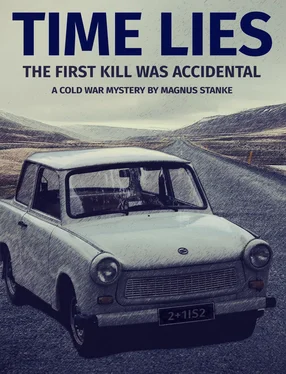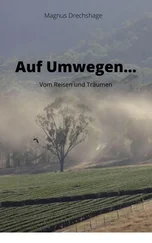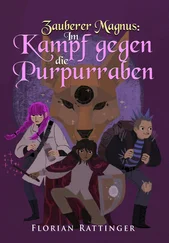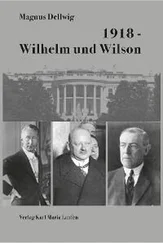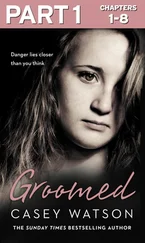His mind drifts to the day he lost his virginity. A day nobody ever forgets, boy or girl, but in Karl’s case it was a day on a global scale — tremendous, earth-shattering, unforgettable.
And it wasn’t just the sex.
Mum, ‘Mamochka’, as he called her tenderly, not because she was Russian, but because all things Russian made a good impression on her back then, and calling her Mamochka earned him a hair-ruffling at least, sometimes a hug and even more rarely a kiss — Mum was in one of her moods.
‘Mamochka, oh Mamochka, why are you sad again? Comrade Lenin and Comrade Stalin, didn’t they say we socialists should rejoice in our ideals? We’re working hard, we’re working even for the capitalists who think we’re against them. They don’t realise we want this here place, this here earth, to be better for everybody, communist and capitalist alike, united by our higher ideals.’
Was it true? Was the communist dogma really that altruistic back then? Maybe, but they never understood this. Instead, as mum would explain, the capitalists come over to our side, to East Berlin and plunder our shops. You see, we ensure that nobody starves, nobody goes hungry. A bread roll costs next to nothing, two pennies. The price of rent hasn’t gone up for nearly twenty-five years. In fact, the rents after the war were reduced to pre-war — 1937 —prices and frozen there. Nobody sleeps without a roof over their heads or with an empty tummy in the Workers’ and Farmers’ state we call the ‘Democratic Republic of Germany’.
Together, united we are strong. Seventeen million strong in East Germany alone. Four million, nearly a quarter of our comrades – your mamochka included — were refugees after the war, when we beat fascism. We welcomed our brothers from the east with open arms. Sure, there are some…misunderstandings, some misinterpretations. That’s why we have the Party — benevolent, watching, helping others to see it our way. Yes, the farmers don’t like the land reforms. They don’t like giving up their so-called private property. Not yet. But they will come round, mark my words. With time they will see the error of their ways; they too will see the light and drop the egotism.
In the summer of ’61, the time came for city kids — like and including Karl — to do their bit for the Revolution, to soak the land with their honest sweat and get a taste of what it meant to toil for a better tomorrow. Callused hands were highly desirable for future cadres. It was during the summer vacations and good, socialist cabbage was there for the digging. Karl’s class was housed on a farm near Delitzsch where the coal smell didn’t hang as thickly as in the cities.
And there he met Ramona, two and a half years older than him, all red curls, freckly skin and blue eyes. She was a sight to behold all right, practically all woman at the tender age of fifteen. And for some reason she took a liking to Karl, dug up the same part of the field, showed him the ropes of harvesting, and a lot more than rope.
When Karl remembers her now he can’t fathom for the life of him what satisfaction, what earthly pleasures she could ever have hoped to derive from him, a tall but lanky, pimply boy from the city, shy as a rainbow, immature as peace on a cold war afternoon. And yet, there she was, there she is, as though he saw her yesterday, leading him on, coming to him in the balmy night in the barn, spiriting him away surreptitiously from his friends, taking him by the hand and beckoning him up the church tower.
With no moon to speak of, Karl remembers not understanding how she found her way through the pitch black so effortlessly. Then the not-understanding ceased to matter as his hands explored, guided by her hands, the netherworld of her skirt and blouse. Unfamiliar, tingling sensations at the tips of his fingers, up up up. His fingers found her small breasts, her hard nipples, her hot groin.
He remembers the dates, the days, the tingling. The first time, the second, and especially the third and last time with Ramona, the night from August 12 to 13, 1961, forever etched into his memory for two reasons; one is her, Ramona the Red. The other reason is the news that night. It spread like a wildfire and brought on a barrage of emotions and reactions from everybody, young and old.
He remembers images, sensations. Looking up from his reclined, supine position he saw Ramona sitting on top of him, riding him like a bronco; his hands wandering up towards her belly-button but stopping halfway. A reaction, a different sigh from her parted lips, deeper, more intense. He remembers lingering, his fingers relishing her sensitivity. This spot she liked. All focus on her now, on Ramona heading for a crescendo, the first one he’d provoked in a woman. His fingers probing the area, circling it, focusing on the one delicate, tender spot, Ramona getting louder and louder all the while.
She reaches for the sky with both arms but falls short, finds a rope instead. The rope is connected to the lever of the axle of the church bell. She grabs it, wraps it around her arm. Karl sees it now like he saw it then. When she comes, she pulls the rope. The clapper hits the inside of the rim, and the toll, nearly deafening the lovers, is heard for miles. Soon it’s joined by others, by chimes from church bells all around, near and far. Ramona untangles her arm from the rope when she’s done, but the echo continues long after it has any right to.
Here’s the thing: it’s no echo, and it’s not Christmas. It’s the middle of August. It’d better not be World War III.
In the languid state that follows the ecstasy, thinking doesn’t come naturally. It takes its sweet time, and only now do the lovers start to worry about what they’ve started. Church bells haven’t been heard for months and years. Good socialists don’t need God — religion is too decadent, too addictive. What if the villagers find them here, half naked, bathed in lustful perspiration, happy and exhausted?
It’s too late to run. People are already gathering outside, curious about the racket. What will the Party do to them? Brand them class enemies? Send them to Siberia?
Worse?
But then comes the miracle. Lady Luck is with the lovers tonight — her timing impossible to improve on. A courier arrives from Delitzsch with news. He’s a busybody who’s not supposed to say anything until the next morning, but when he sees all the people and hears the church bells all around he can’t keep his trap shut, spurts out the news that rocks the entire nation to its foundation.
August the thirteenth is the day that the right and honourable Leadership, the SED, the Party, erects a Wall around the country, a Wall to keep the others out, capitalists and carpetbaggers who come over, buy our produce cheaply and resell it for a huge margin in West Berlin. Thanks to the Party we have the Wall. Thanks to the Wall, the West will take us seriously now and the profiteers, the exploiters, can no longer exploit us, can no longer profiteer from us.
They are locked out for good.
For a moment there is silence around the old church. Then the questions begin and the lovers mingle with the crowd, make their getaway unseen.
‘And us? Are we locked in?’
‘We are safe from the capitalist-imperialists, and now stop asking questions.’
It was a conversation oft repeated in seventeen million minds in the days and months and years following the day, August 13, 1961.
Yes, we are safe from them.
But are we safe from ourselves?
*
Karl opens his eyes. Something has brought him out of his state, back to this room.
Is he really safe here, safe from himself at least? Has he likewise built a wall around himself to shield against the outside when the real danger is – and has been always – inside?
Читать дальше
